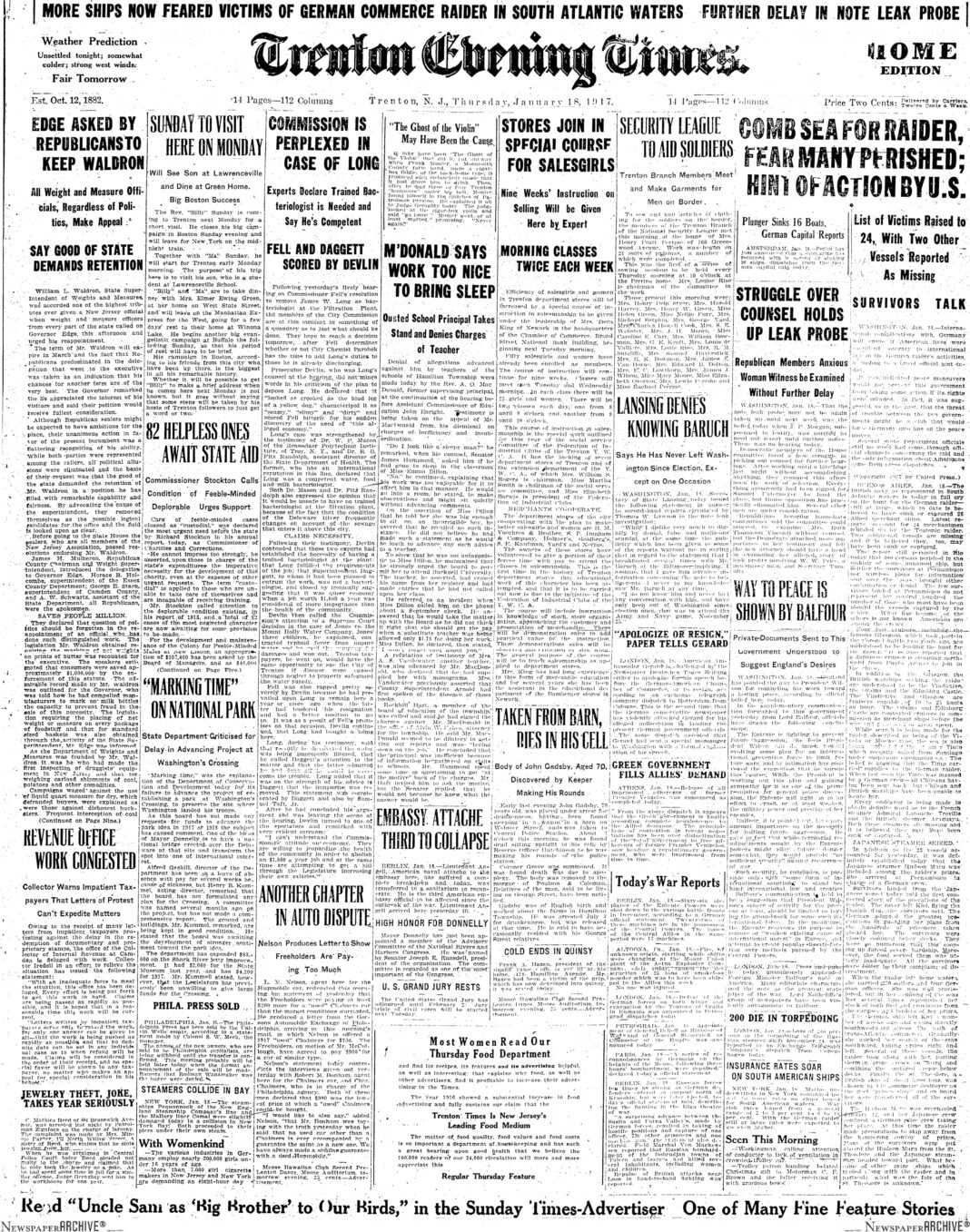For Historic Trenton’s Day in the Life, we’re’ looking back through newspapers from the beginning and examining everyday problems, solutions, and needs during historic Trenton’s past. Today, we go back to Thursday, January 18, 1917, as the Trenton Times predicted slightly warmer weather throughout the day with the possibility of it warming up.
Saleswomen were learning how to operate Trenton department stores, with a unique class being led by Mrs. Dora King of Newark, NJ. The course lasted nine weeks and included studies about salesmanship. At the time of publication, more the 50 women from the area signed up to participate. Trenton stores like H.M. Voorhees & Brother, S.P. Dunham & Company, Holzner’s, Goldberg’s, S.E. Kaufman, Yard’s, and Nevis all volunteered a portion of their workforce to attend these classes.
In other news, the Department of Conservation and Development was under fire for taking too long to acquire funds to move forward with Washington Crossing’s National Park installment. The project was characterized as one that never moved forward. The Acting Director at the time, Henry B. Kummel, explained to the Times that the committee was waiting on the public to have a strong sentiment toward the park in general.
Trenton branch members of the National Security League met up to knit clothes for troops in Europe. Mrs. Henry Pratt Perrine from 166 Greenwood Avenue in Trenton hosted the event as branch members knitted 21 pairs of pajamas. This continued as they met every Thursday at 10 a.m. to offer up assistance.
In a smaller section toward the bottom of the front page, there was a warning about rising insurance rates for ships across the east coast due to the German U-boat attacks. To put this in context, World War I, which started in 1914, would last for just under two years from the publishing of this Times edition. During the conflict, the Central Powers of Germany, Austria-Hungary, Bulgaria and the Ottoman Empire fought against the Allied Powers of Great Britain, France, Russia, Italy, Romania, Japan and the United States. It was a time defined by progressive technology, trench warfare, and historic levels of carnage and destruction.
On a more humorous note, in a short story entitled “The Ghost of the Violin,” an offkey instrument may have been the cause of a poor man’s bleak future. A Times reporter wrote about Frank Monter, a Monmouth County farmhand who was visiting the city of Trenton. He fashioned himself a homemade-cigarette-box fiddle and played it all night, but according to the report, the fiddle made such bad music that it drove him to drink. He had three or four “Trenton Hummers” before landing in police custody. After his day in court, the judge took pity on him and let him go with a warning.





